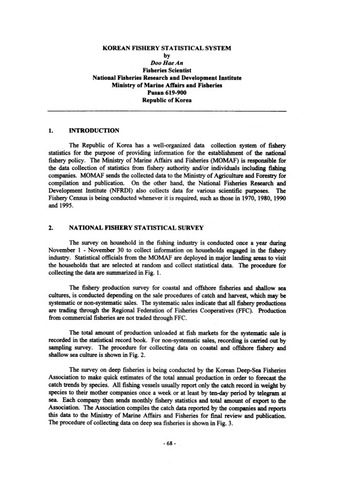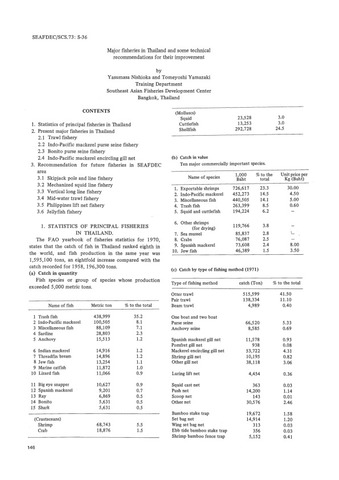Korean fishery statistical system
Share
trừu tượng
The Republic of Korea has a well-organized data collection system of fishery statistics for the purpose of providing information for the establishment of the national fishery policy. Details are given of the National Fishery Statistical Survey (conducted once a year), the Scientific Fishery Statistical Survey (conducted by the National Fisheries Research and Development Institute), and Fishery Censuses (conducted whenever required).
Suggested Citation
An, D. H. (1997). Korean fishery statistical system. In Fishery and Aquaculture Statistics in Asia: Proceedings of the FAO/SEAFDEC Regional Workshop on Fishery Statistics, Bangkok, Thailand, 19-21 August 1997: Vol. II. Fishery and Aquaculture Statistical Systems and Programs (pp. 68-74). Bangkok, Thailand: Secretariat, Southeast Asian Fisheries Development Center.
Chủ thể
Related items
Showing items related by title, author, creator and subject.
-
The Status of Fisheries in the Republic of Maldives
Faiz, Mohamed (Training Department, Southeast Asian Fisheries Development Center, 1997)The paper discusses the tuna fisheries in Maldives which dominates its fishing industry. Apart from a very strong domestic market, tuna is also the main export commodity of the country. Moreover, reef fisheries such as, ... -
Major fisheries in Thailand and some technical recommendations for their improvement
Nishioka, Yasumasa; Yamazaki, Tomeyoshi (Japan International Cooperation Agency, 1977)Presented in this paper is the development of fisheries industry in Thailand. The data on the production of the principal fisheries species and major fishing methods are also presented. Also included are the recommendations ... -
Status of Fishing Conditions in Cambodia
Sour, Kim; Vuthy, Ros (Training Department, Southeast Asian Fisheries Development Center, 1997)Fisheries in plays a very important role in Cambodia’s national economic development. Total fish catch production in 1996 was 104 310 tones, about which 60% was contributed by inland capture fisheries, 30% by marine capture ...





